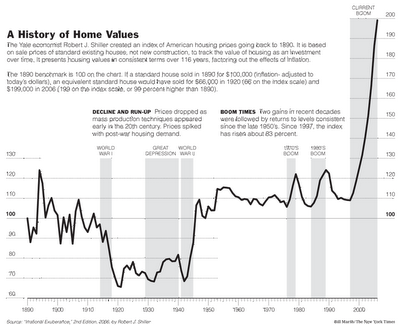Ottawa home builders slammed on the brakes in August 2006 as starts on new homes sank to their lowest level in more than three years, and a drop in permits and new projects signaled more weakness ahead for the real estate market.
Ottawa Housing starts sank. Starts are at the lowest level since April 2003. It also marked the sixth time in the last seven months that starts have fallen from the previous month's level.
Economists had forecast starts would drop.
Building permits, which are seen as a reading of builders' confidence in the market, fell in August. Economists had forecast permits would slow in August.
Many of the Ottawa home builders have been lowering guidance on home sales in recent weeks, reporting lower prices and excess supply of homes on the markets.
Economists said that as weak as housing starts and permits were in August, it's likely they will both continue to fall in future months.
Until we see a recovery in housing permits, it is unlikely that we have seen the bottom.
The one piece of good news for the housing market from Tuesday's report is it suggests that the supply of new homes on the market could start to narrow, since builders are pulling back so sharply.
The inventory of completed new homes on the market for sale hit a record high in July, according to a separate government report, and that glut of homes on the market has put downward pressure on all home prices.
Thank goodness the builders are cutting back on their additions to supply; it's an absolutely essential adjustment at this point.
The building boom of 2004 and 2005 has left the market with an oversupply that could take years to work through.
We probably won't see a bottoming until the middle of next year, but we could well be running below potential into 2008.
Home building in Ottawa has become an important segment of the economy, and the weakness in building could put a crimp in hiring and economic activity for years to come.








